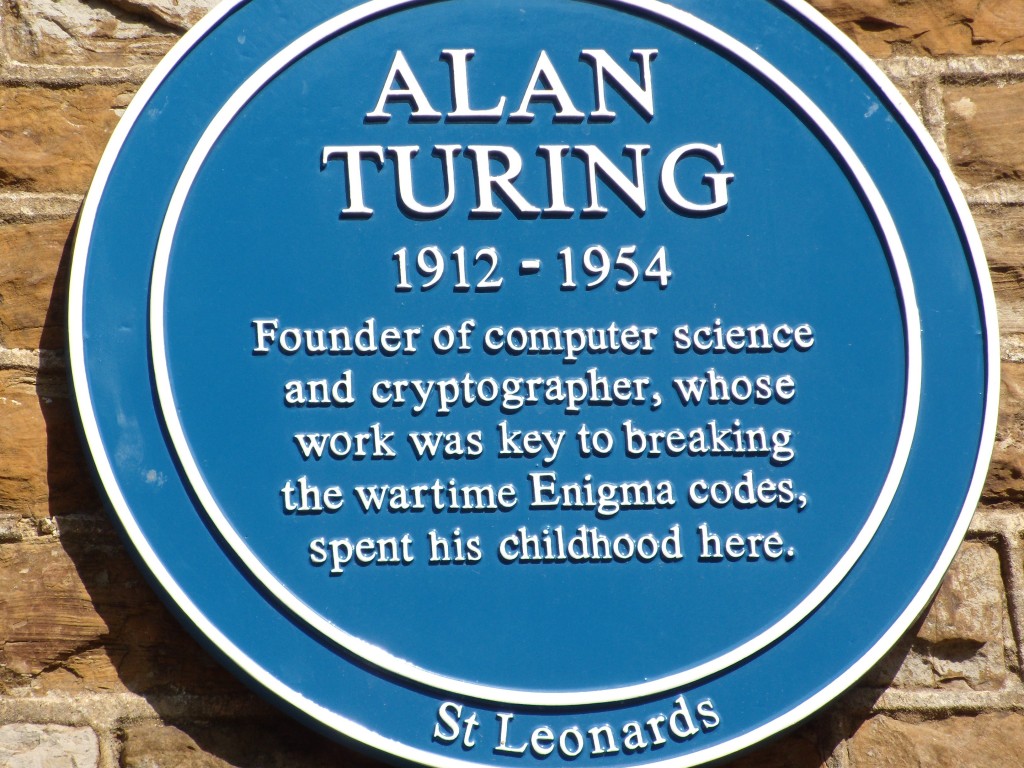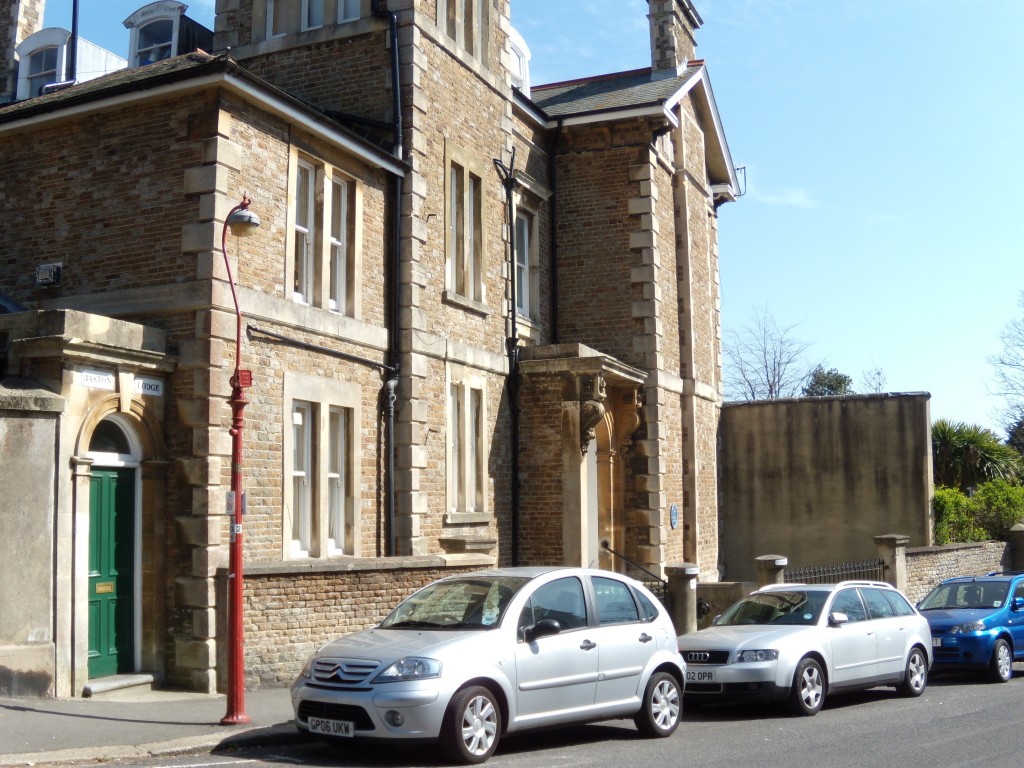I’m now into the final 5-10,000 words of the first draft of the novel. I was hoping to finish the draft this week but I don’t think it’s going to happen. This final little chapter is very important, and trying to get it right, even with 95,000 words already written, even in first draft which I know will all be changed anyway, feels like bearing a heavy weight uphill. It’s an exciting challenge though, and I relish those. I know what I have to write, just not – yet, quite – how.
During the afternoon I took a break from the actual writing and went for a stroll in the part of town where the chapter happens. There’s nothing like roaming around the houses for setting loose a storm of ideas, for me anyway, and at the very least I now have a renewed sense of place at the forefront of my imagination. My walk took me past the house where Alan Turing spent his childhood. It’s a sad story – Turing’s father was based in India so Alan was semi-adopted by a friend of his, the retired Colonel Ward – and I can’t help feeling that such a sensitive little boy must have retained some sense of displacement, even though this was the only life he knew. The British establishment’s later treatment of Alan Turing fills me with an anger so raw that the only appropriate way of channelling it would be to filter it through a story, something I would very much like to try and do one day.
In the meantime I have this place, and the honour of sharing space with a unique mind. Baston Lodge, long since converted into flats, sits silently in a quiet corner of an unsung town. The writer Rider Haggard lived just down the road. This lunchtime there was no one about. I stood outside on the pavement, thinking about Turing and about my story and trying to imagine myself backwards into 1913.

